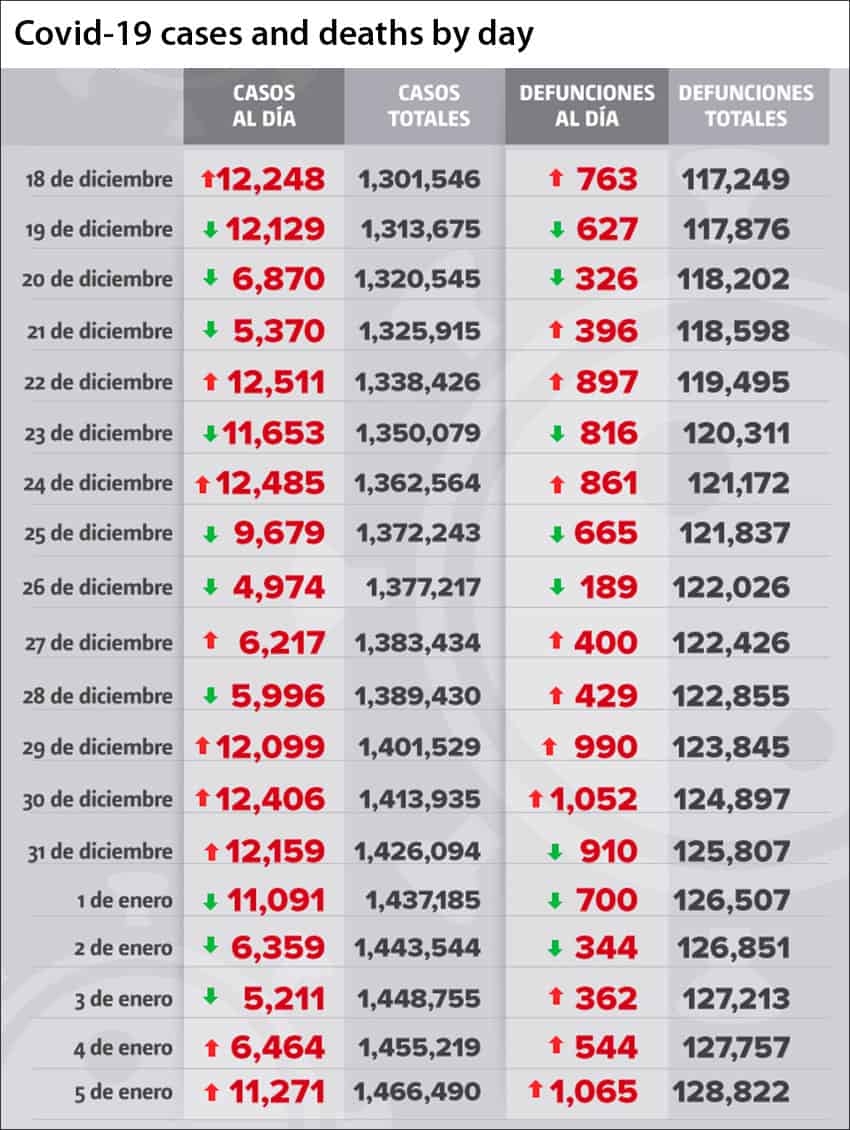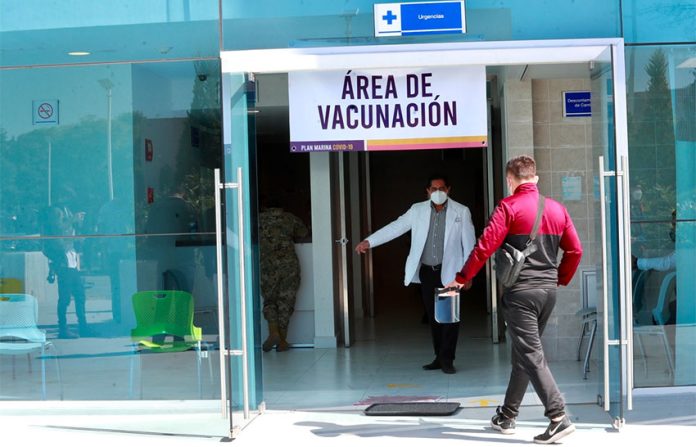The federal government said Tuesday it expects to vaccinate 12.45 million seniors against Covid-19 by the end of March but only provided limited details about its ambitious plan.
President López Obrador said that 10,000 vaccination brigades will inoculate old-age pensioners at community centers and in their homes but didn’t reveal when the campaign was expected to start.
Each brigade will consist of 12 people, he said: four government welfare officials “who know the communities” where the vaccines are being administered, two health workers who will be responsible for giving the shots, four military personnel who will guard the vaccines and brigade members and two volunteers whose exact role was not announced.
López Obrador said that seniors will be given advance notice of when they will be given their Covid-19 vaccination shots. He estimated that 50 of every 300 seniors will have to be given their shot (or shots) at their homes rather than community centers due to mobility issues.
Each of the 10,000 brigades will be tasked with administering 300 vaccinations per week. If they achieve that goal, 3 million shots will be given every week, meaning that 12 million people could receive at least one dose of a vaccine in the space of a month.
The president did not disclose which Covid-19 vaccine or vaccines will be used to inoculate seniors or how much money will be allocated to the vaccination campaign.
Given that the brigades intend to vaccinate people in isolated communities as well as cities and towns, it would appear likely that the AstraZeneca/Oxford University vaccine will be used. That vaccine – of which the government intends to buy 77.4 million doses – is cheaper than that made by Pfizer and can be transported and stored at regular fridge temperatures. It was approved by the health regulatory agency Cofepris on Monday and Deputy Health Minister Hugo López-Gatell said that immunization could begin in March.
The Pfizer/BioNTech and the AstraZeneca/Oxford University vaccines both have to be administered in two doses, meaning that the government will have to start administering the first of the two to seniors by the start of March at the latest in order to complete the process by the end of that month.
Meanwhile, with five months to go before the midterm elections, the ruling Morena party has begun an online and radio advertising campaign highlighting that the government intends to vaccinate all Mexicans free of charge.
“The government … will guarantee that everyone receives the vaccine against Covid-19,” says an ad voiceover.
“Morena will provide half its budget for the purchase of vaccines, … [which will] reach every corner of the country – evenly, without social distinction, without influence, without corruption because health is a right, not a privilege.”

A National Action Party (PAN) senator filed a complaint with the National Electoral Institute (INE) against Morena, charging that it had improperly used the vaccination program to bolster its chances at the state and federal elections to be held June 6. However, the INE ruled that Morena had not violated rules that apply to the pre-campaign period.
Opposition parties also claim that that the deployment of vaccination brigades across the country is part of the López Obrador government’s election strategy.
Institutional Revolutionary Party Senator Manuel Añorve said he had no doubt that the government’s aim was to win votes at the elections in June.
However, he claimed that the ruling party’s electoral prospects could actually be hurt if the government doesn’t meet its stated vaccination targets. The lawmaker likened the declaration of a vaccination target to a boomerang that could come back to hurt the government.
PAN president Marko Cortés also said that the government is using Covid-19 vaccines as “an electoral tool,” charging that it is only bringing vaccines into the country “in dribs and drabs” and that it doesn’t have the logistical capacity to administer them efficiently.
“The electoral management that the president is giving to the use of the vaccine is clear,” Cortés said, adding that the private sector and state governments should play a role in its purchase, distribution and application.
“There is no legal limitation but the government has the control of customs,” he said, suggesting that federal authorities could seek to hinder the importation process.
PAN Deputy Juan Carlos Romero Hicks said the government’s vaccination strategy for seniors is a “simulation” because it doesn’t set out the logistical process to be followed or take into account the infrastructure that will be required.
“Three vaccines are urgently needed,” he quipped. “One against the incompetence of this government, another against its arrogance and another against frivolity.”
Politics aside, the need for a wider rollout of Covid-19 vaccines (only health workers are currently being vaccinated) is becoming more urgent by the day.
Mexico recorded 1,065 additional Covid-19 fatalities on Tuesday, lifting the official death toll to 128,822. It was the second time in less than a week that the daily death toll exceeded 1,000.
The coronavirus case tally rose by 11,271 to just under 1.47 million, a figure considered a vast undercount due to Mexico’s low testing rate.
Source: El Financiero (sp), El Universal (sp)
